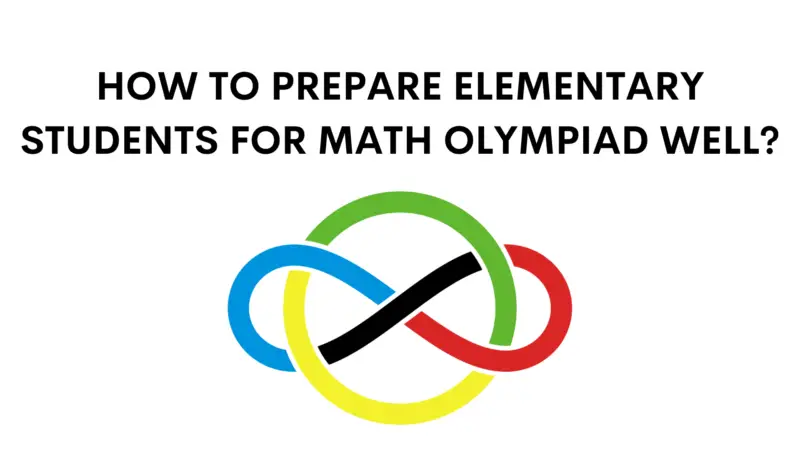“Before the competition, it is important to get in shape. You can not be distracted by the holidays,” said Stanislav Krymsky, a Russian student who bagged first place in the 59th International Mathematical Olympiad competition held in Romania. His spectacular achievement at an early age did not come out of thin air. For him, perseverance and an “I won’t quit” mindset allowed him to reach this milestone before entering the university. When faced with a problem he could not solve, he does not give up. Instead, he rests and comes back after a while, making him an IMO gold medalist.
What is Math Olympiad
Math Olympiad is only one among the many global academic competitions held annually. It comes from the idea of the “Olympic games” comprised of competitions in sports, music, and literature. We still have this in the present, and so are its counterparts in the academic field. Aside from Math, Olympiad competitions are also done in Science, Biology, Chemistry, and even Astrology.
The International Mathematical Olympiad (IMO) is a math competition joined by elementary and high school students from hundreds of countries all over the world. It was first held in Romania in 1959 through the sponsorship of the International Mathematical Olympiad Foundation (IMOF), consisting of experts and volunteers who have a genuine interest in Math.
The IMO is open to all pre-university students. In total, each country can send six representatives. Each country holds its own nationwide Math Olympiad competitions to decide who represents. The selection process for each country differs but they all come the same in filtering out participants every round to select the cream of the crop. So, anyone who meets the requirement can join the selection process. This does not only aim to select representatives for the international competition but also advocates the young generation’s interest in the field of Math.
How to Prepare Elementary Students for Math Olympiad
Here are some tips on how to prepare your elementary kids for Math Olympiad
- Know the competition
The most basic thing to do in preparing for a competition is to know how it works. You can visit International Mathematical Olympiad’s official website to see the dates and details. They also have available information on what types of tests are given for each round. These are very crucial as your child would perform well if they are accustomed to similar kinds of tests and questions as in the actual competition.
Since each country conducts its own screening competitions, it is essential to go through them first before eyeing the international competition. Countries have official websites for their national competitions. The Philippines, for instance, has the Philippine Mathematical Olympiad, Malaysia has the International Mathematical Olympiad National Selection Test (IMONST), India has the Indian National Mathematical Olympiad (INMO), and more. They have information on the syllabus, dates, rules, and other essentials.
- Set a healthy study habit
Others argue that the longer time spent studying, the better. Actually, the best study habit has a good balance of studying and rest. It is best if your child enjoys studying for the competition. One tip is to give them enough rest afterward. Maximize their time by removing unnecessary habits and activities that do not help in sharpening their minds in the field of Math.
- Make a routine
Studies have also shown that the human mind functions best if it is set in a routine. You might want to know which time of the day your child’s brain functions best and allot that time for studying. Give them adequate time for sleep and recreational activities.
- Understand the syllabus
You have to understand Math Olympiad’s syllabus to make an efficient study plan throughout your preparation. You can determine which topics are most important or hardest for your child and spend more time studying them. This way, you can allocate their time to learning strategically.
- Practice, practice, practice
Math is a problem-solving-heavy subject. So, the best way to study it is to practice with your child in solving problems. You can use some of Math Olympiad’s previous questionnaires or other resources available on the internet. Brilliant has a good number of courses available that are specifically made to prepare your child for the Math Olympiad. Using them to sharpen your child’s problem-solving and critical-thinking skills will help a lot to give them an upper hand in the competition.

As much as possible, make sure that their preparation is fun and interesting. Brilliant also provides fun daily Math questions that will surely grab your child’s attention.
- Maintain your composure
Practice calmness. Your child might get overwhelmed by the difficulty of the competition. To aid this, you can find out how to alleviate their emotions. It can be by giving them a certain drink, rest time, taking a stroll, destressing activities, etc.
Frequently Asked Questions:
Question: Who is the youngest Math Olympiad winner?
Answer: Terence Tao, who was just 13 years old in 1988, gave Australia his first gold medal in the Math Olympiad. In the previous years of 1986 and 1987, he also bagged the bronze and silver medals in the same competition, making him the youngest winner of all three places in the history of IMO. Terence Tao has performed extraordinary intelligence in Math since a young age. At the age of nine, he is already dealing with university-level Mathematics and holds the record for youngest IMO participant at the age of 10.
Now, Terence Tao is a Math professor at the University of California Los Angeles, inspiring students to also embrace the presence of Math in their lives. He is also a recipient of the Fields Medal, seen as the Nobels Prize for Mathematics. Professor Terence Tao is now regarded as one of the greatest mathematicians of the modern era.
Question: How hard is Math Olympiad?
Answer: It is given that Math Olympiad consists of Mathematical equations that require the best intellectuals to be solved. Its difficulty can be grasped by the way this competition is conducted. Basically, the IMO is made up of six mathematical problems that weigh seven points each, making the perfect score 42. The competition per se happens in two days, with three questions solved on the first day and the other three on the next. With no calculators allowed, participants solve each question within 90 minutes or 1 1/2 hours. In total, participants take up to nine hours to finish all equations.
It is not hard to understand the questions, said former IMO participants to the Guardians, yet understanding and solving them are two different things. The problems only cover basic mathematical topics like Geometry, Number theory, Algebra, and Combinatorics. But these questions require complex critical thinking skills to come up with the right answer, which is why such long hours are required for each problem.
In 2015 IMO, the threshold for a gold medal dropped to 26, which is already the lowest grade throughout the history of the competition.
Question: How do I start preparing my child for the Math Olympiad?
Answer: Given the nature and difficulty of the competition, the best preparation for an aspiring Math Olympiad representative is to have a strong foundation in basic Math lessons. This can be attained through regular practice and exposure to problems that stimulate the mind into applying these mathematical theories to problems.
Brilliant is an online platform that provides vigorous training for students in the fields of Science, Technology, Engineering, and Math (STEM). They have a whole list of different Math courses that can help your kid master basic math lessons. If your child is just starting their early preparation for the Math Olympiad, Everyday Math might be a good beginning for them as it reviews the most simple topics like fractions, exponents, place values, percents, and others of similar kinds. Then, they can immediately go to Logic to train their analytic skills so they would have what it takes to analyze the problems that Math Olympiad competitions have.

After these basic courses, they can also try the Mathematical Fundamentals, a 28-lesson course that masters the students’ capacity to apply theories to problems. What makes Brilliant perfect for Math Olympiad aspirants is how it delivers problems more than passive video content. It also gives students the freedom to self-learn since the materials provided also comes with solutions and explanations.
If your child develops an interest in Math, they can even go to advanced topics such as Calculus, Trigonometry, Linear Algebra, Finance, and other branches. This is very much possible since Brilliant courses are arranged with increasing levels of difficulty, so it would increase your child’s interest and love for acquiring new skills and learnings over time.
This, alongside proper guidance and monitoring of their study habits, will surely get your child proper preparation for the Math Olympiads.
Question: How do I study for Singapore Math Olympiad?
Answer: The best way to study for a competition is to undergo mock tests. This means that their learning method should be a similar way to how the competition works. The Singapore Mathematical Olympiad (SMO), organized by the Singapore Mathematical Society (SMS), shares its sample questions, which are pretty much in the same format as that in International Mathematical Olympiad.
You can practice your child with the available sample questions, but this is not enough if you want them to delve deep into their full potential. Brilliant has Contest Math I, a course filled with mathematical equations that cover basic math topics in Math Olympiads. This course is specifically made for students who are preparing for math competitions, so you can assure that the materials will indeed challenge their analytical and problem-solving skills. It has 68 lessons on it. If ever this is still not enough, it also has Contest Math II which covers more advanced topics to sharpen your child’s mind.
All of these Brilliant courses are accessible in one go. You can have them in one whole month for only 14 SGD. Given the massive amount of courses in Brilliant, your child might need more than a month to finish them all. So, you can also subscribe to their annual package which will lower the monthly price to 9 SGD. If you want to check whether or not this fits your child’s need, they also have a 7-day free trial by only signing up to their website.
While all these points are extremely helpful to prepare your child for the Math Olympiad at the elementary level, other things also weigh on here. They should have a genuine interest in learning Math and seeing how it is embedded into the world. Good thing that Brilliant uses fun-learning materials so your child will not lose motivation in studying them, but proper guidance and healthy study habit will also make a lot of difference. We hope to see your child be a Math Olympiad winner soon!

